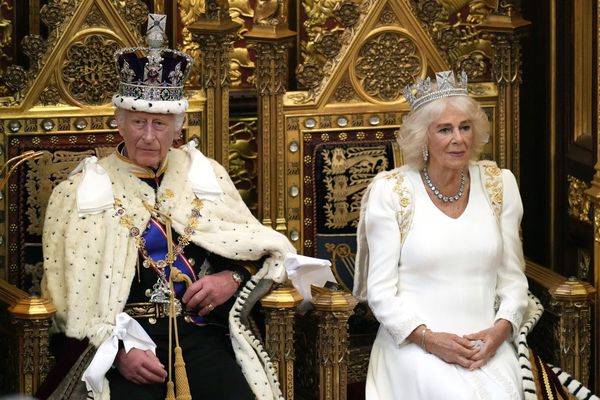
During the pandemic, in 2020 and 2021, the U.S. government issued three rounds of stimulus payments, totaling more than $930 billion, to support individuals and families facing financial difficulties.
Soon, more than 25 million Americans may be receiving a similar gift from the government — perhaps call it a backdoor stimulus — in the form of student loan debt forgiveness.
Don't miss the move: Subscribe to TheStreet's free daily newsletter
The Covid payments were part of broader relief efforts, including increased unemployment benefits and small business loans, with a mission of mitigating the economic impact of the pandemic on households and businesses.
The payments offered important financial support, helping millions of Americans pay for vital costs such as rent, groceries, and medical bills during the economic crisis that accompanied the health emergency.
Many people who owe money on student loans have been awaiting comparable assistance in the form of forgiveness of that debt since President Joe Biden took office in 2021.
They have been told relief was on its way, only to then see it challenged in court. And those lawsuits have led to multiple rulings halting the program.
Even so, the Biden administration has continued to seek alternative legal tracks to student loan forgiveness. And it appears to have kept the program alive once again, thanks to a move by a federal judge.
Related: Dave Ramsey reveals interest rate, mortgage truth you should not miss
Student loan forgiveness survives a court challenge
U.S. District Judge J. Randal Hall, serving in the Southern District of Georgia, allowed the restraining order on President Biden’s student loan forgiveness plan to expire on Oct. 1. This decision means that the plan can now move forward.
The restraining order was initially put in place because several states argued that the student loan forgiveness plan was illegal and would cause them harm. However, Judge Hall ruled that Georgia did not provide enough proof to show evidence of that harm.
More on student loans
- Major student loan company forced to pay $120 million for bad behavior
- Average Americans are not prioritizing 401(k)s, student loans, and family planning
- Biden's student debt relief plan will remain blocked, judge orders
That made Georgia an improper location for the case to be argued, Hall decided.
Biden's original student debt relief plan was intended to permit the federal government to forgive up to $20,000 in student loans for about 40 million recipients.
The new plan — the one involved in the lawsuit for which Judge Hall allowed the restraining order to expire — was announced last April.

Shutterstock
The new student loan forgiveness plan affects millions of Americans
At the time, the White House had announced details of its new alternative student debt relief plan.
"In total, these plans would fully eliminate accrued interest for 23 million borrowers, would cancel the full amount of student debt for over 4 million borrowers, and provide more than 10 million borrowers with at least $5,000 in debt relief or more," a White House statement said.
Related: Biden White House erases another $1.2 billion in student debt
The statement also explained some of the difficulties student loan recipients have experienced over time, and discussed the scope of the administration's proposed remedy.
Millions of the borrowers who could be helped by these plans have continued to see their balances grow because of accrued interest, despite making their monthly payments. Many have also had this unpaid interest capitalized, meaning it is added to their principal balance and borrowers are now paying interest on that higher amount. The Administration’s plan would forgive interest balances built up to date for 25 million borrowers, with 23 million likely to have all of their balance growth forgiven.
Related: Veteran fund manager sees world of pain coming for stocks







